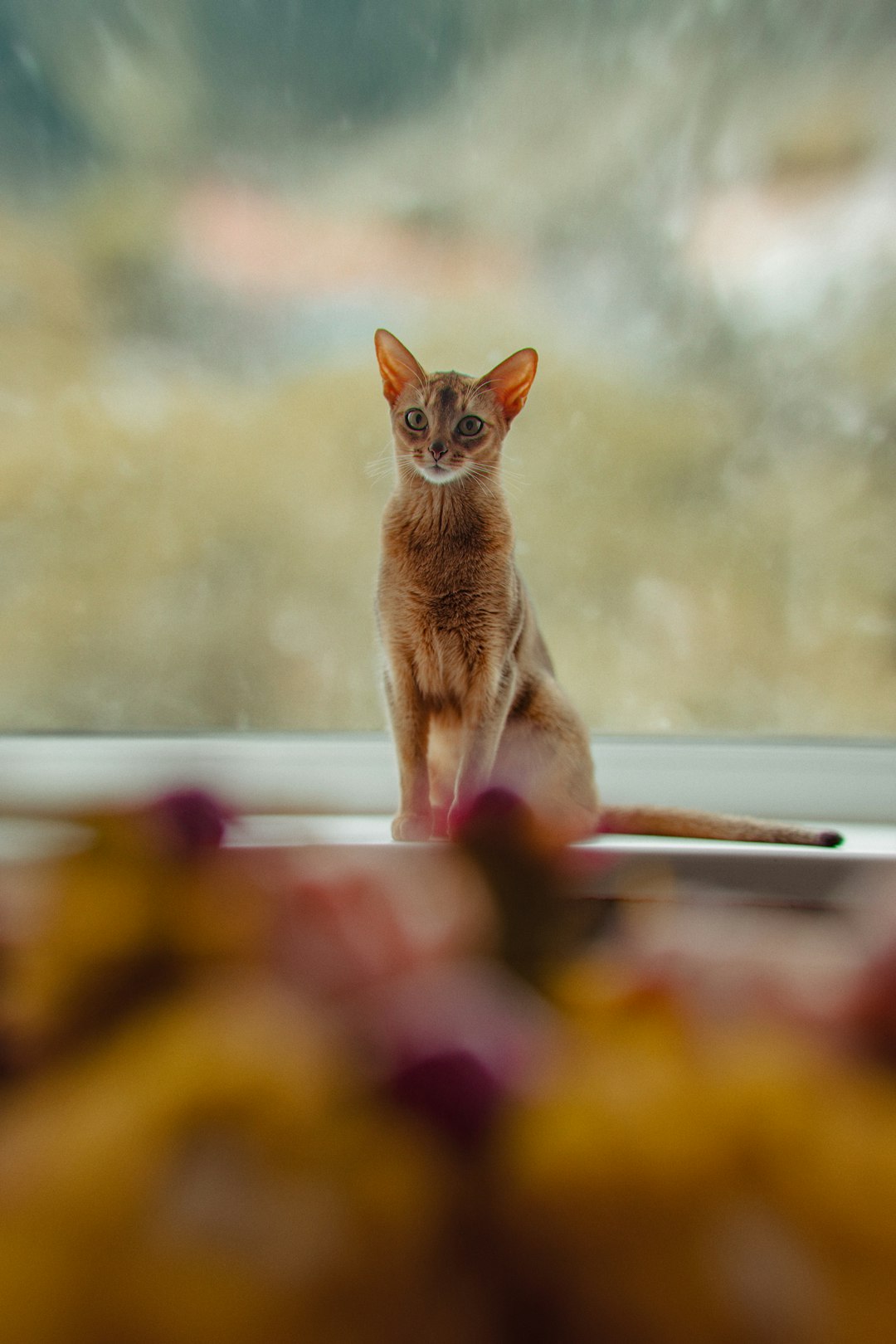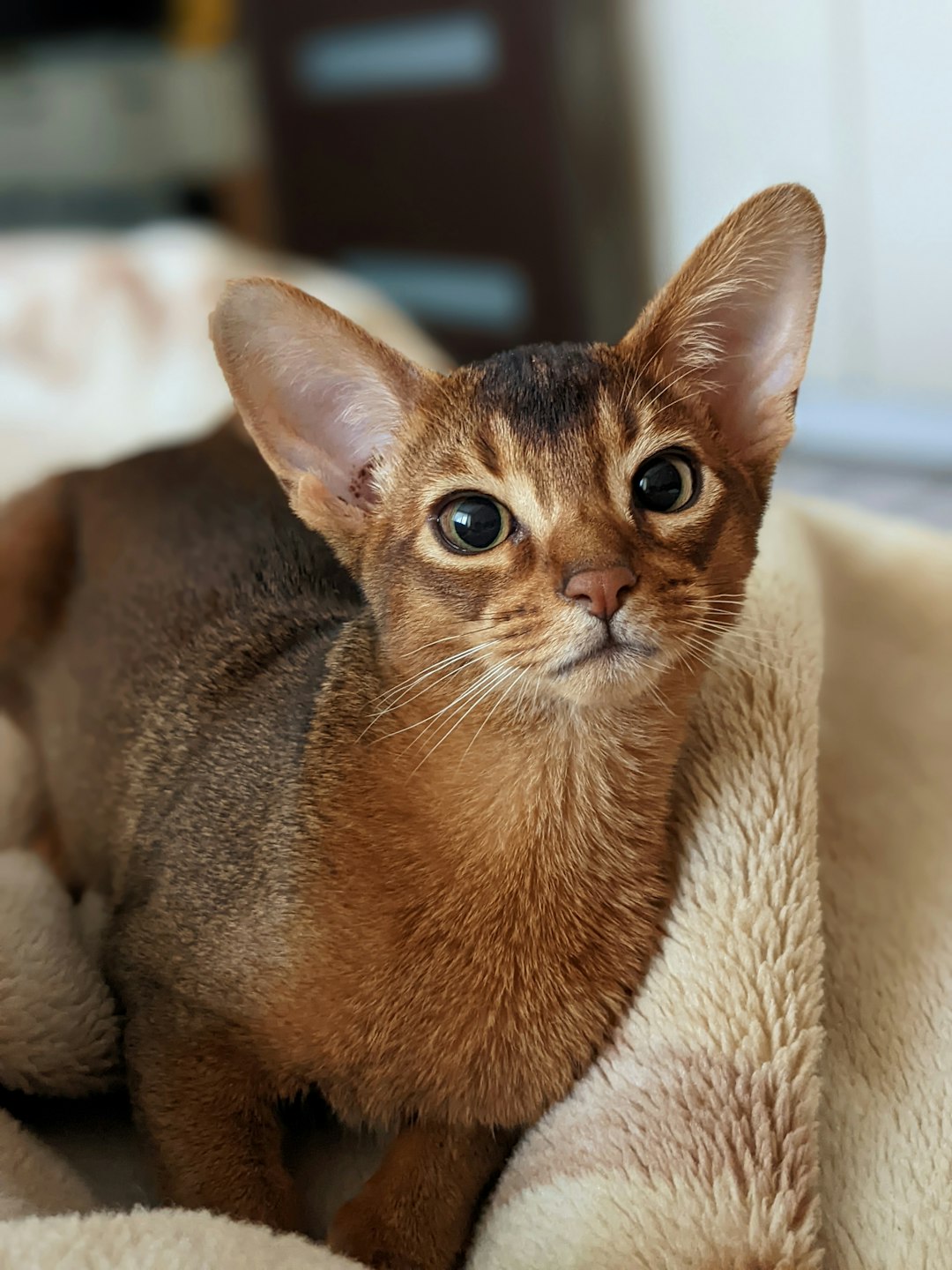The Javanese cat captivates pet lovers with its striking beauty and remarkable intelligence. Originating from a blend of several breeds, this enchanting feline boasts a unique appearance and playful personality. Recognized for their long, silky coats and stunning color points, Javanese cats stand out in any setting. As we delve deeper into their fascinating history and characteristics, you’ll discover why these graceful companions are not only visually appealing but also possess an engaging temperament that makes them a beloved choice for families and individuals alike.
Origin and History of the Javanese Cat
The Javanese cat is a captivating breed with a rich history that traces back to the mid-20th century. Originating in the United States, this breed develops from several long-haired cats, including the Balinese and Siamese, resulting in a distinctive appearance and personality.
- Key points about the Javanese cat’s history:
- Early Development: First recognized in the 1950s, breeders aimed to create a long-haired cat with the vibrant patterns of the Siamese.
- Name Origin: Named after the Indonesian island of Java, the name reflects the breed’s exotic appearance and enchanting grace.
- Recognition: The Javanese cat gained recognition from the Cat Fanciers’ Association (CFA) in the 1980s, further establishing its popularity.
The Javanese cat stands out due to its unique combination of beauty and intelligence. This breed not only showcases stunning colors and patterns but also possesses a playful and social nature that endears it to many cat lovers.
Physical Characteristics of Javanese Cats
The Javanese cat captivates with its striking appearance and unique features. Here’s a closer look at its physical characteristics:
Size: Medium-sized cats, typically weighing between 5 to 10 pounds.
Body Structure: Sleek and muscular with a long, slender build.
Coat: Semi-longhair, soft and silky, coming in a variety of colors including:
- Seal
- Blue
- Chocolate
- Lilac
Eyes: Large and expressive, usually in shades of blue, contributing to their enchanting look.
Ears: Prominent, pointed ears that stand tall, enhancing their alert expression.
Comparison Table of Javanese Cat Features
| Feature | Description |
|---|---|
| Size | Medium (5-10 pounds) |
| Body Shape | Long and slender |
| Coat | Semi-longhair, various colors |
| Eye Color | Blue |
| Ear Shape | Large and pointed |
The Javanese cat combines elegance with playful charm, making it a delightful companion. Their beauty is unmistakable, and their physical traits contribute to their overall allure.
Temperament and Personality Traits
The Javanese cat boasts a captivating mix of personality traits that endear them to many feline enthusiasts. Known for their lively and playful nature, these cats bring joy to any household. Here are some notable characteristics:
- Affectionate: Javanese cats enjoy cuddles and human interaction, often forming deep bonds with their owners.
- Intelligent: Highly trainable, they engage in mental stimulation activities, making learning tricks and commands a thrilling experience.
- Curious: Their inquisitive nature drives them to explore their environment, so providing safe spaces is essential.
- Playful: With an endless supply of energy, Javanese cats love chasing toys and engaging in interactive games.
Comparison of Javanese Cat Traits with Other Breeds
| Trait | Javanese Cat | Siamese Cat | Persian Cat |
|---|---|---|---|
| Affection Level | High | Medium | High |
| Intelligence | High | Very High | Low |
| Playfulness | Very High | Medium | Low |
In summary, the Javanese cat stands out with its affectionate demeanor, intelligence, and playful nature, making it an ideal companion for active families.
Care and Maintenance of Javanese Cats
Caring for a Javanese Cat requires dedication and understanding of their unique needs. By focusing on these essential aspects, you can ensure your feline companion remains happy and healthy.
Grooming: Due to their medium-length, silky fur, Javanese Cats require regular grooming. Aim for:
- Weekly brushing to prevent matting and reduce shedding.
- Bathing occasionally to keep their coat clean and free of dirt.
Diet: Providing a balanced diet is crucial for your Javanese Cat’s health. Consider:
- Quality dry and wet cat food rich in protein.
- Fresh water at all times to keep them hydrated.
Exercise: Maintain physical fitness through:
- Interactive playtime: Engage your cat with toys like feather wands and laser pointers.
- Environment enrichment: Provide scratching posts and climbing structures.
Regular vet check-ups: Schedule annual visits for vaccinations, dental care, and general health assessments.
By attending to these care and maintenance needs, you help nurture the grace and intelligence that make the Javanese Cat a wonderful companion.
Common Health Issues in Javanese Cats
Javanese cats are generally healthy, but like any breed, they can be susceptible to certain health issues. Being aware of these potential ailments can help you provide the best care for your furry friend. Here are some common health concerns to monitor:
Hypertrophic Cardiomyopathy (HCM): This genetic condition affects the heart muscles, leading to heart failure. Keep an eye out for symptoms such as lethargy or difficulty breathing.
Dental Issues: Javanese cats can develop periodontal disease. Regular dental checkups and at-home dental care are essential for their oral health.
Obesity: Since these cats are playful, overindulgence can lead to weight gain. Make sure to balance their diet and encourage physical activity.
Viral Infections: Javanese cats can be at risk for feline leukemia virus (FeLV) and feline immunodeficiency virus (FIV). Regular vaccinations and vet check-ups can help prevent these infections.
In summary, while the Javanese cat is a lovely breed, proactive health management ensures they remain happy and healthy companions. Regular veterinary visits and attentive care can help you identify and address any issues early on.
Training and Socialization Tips
Training your Javanese cat can be a rewarding experience, as these cats are known for their intelligence and eagerness to learn. Here are some effective tips to ensure your training sessions are successful:
- Start Early: Begin training your Javanese cat as a kitten. Early socialization helps them adapt to different environments, people, and other pets.
- Use Positive Reinforcement: Reward your cat with treats, praise, or playtime when they follow commands. This encourages good behavior without fear.
- Keep Sessions Short: Javanese cats have short attention spans. Aim for 5-10 minute sessions to maintain their interest and focus.
- Be Consistent: Stick to the same commands and cues. Consistency helps your cat understand what you expect from them.
- Introduce New Experiences Gradually: Expose your cat to various people, sounds, and environments slowly, ensuring they feel safe and secure.
- Play Interactive Games: Incorporate play into training. Use toys to reinforce commands or encourage movement, stimulating both their body and mind.
By following these tips, you can foster a well-behaved, confident Javanese cat that thrives on companionship and interaction.
Fun Activities and Play Ideas
Keeping your javanese cat engaged and entertained is essential for its mental and physical well-being. Here are some fun activities that can stimulate their playful nature:
Interactive Toys: Invest in toys that require your javanese cat to think and solve problems, such as puzzle feeders or treat-dispensing balls.
Feather Wands and String Toys: Javanese cats love to chase and pounce. Using feather wands or string toys can mimic the motions of their natural prey.
Hide and Seek: Javanese cats enjoy exploring. Hide treats around the house and let your cat find them, turning mealtime into a fun scavenger hunt.
Cat Agility Course: Create a homemade agility course with tunnels and ramps to encourage physical activity while improving their coordination.
Laser Pointers: Use a laser pointer to engage your javanese cat in a game of chase. Ensure to end the game with a tangible toy to pounce on, as this provides closure.
Remember, regular play not only keeps your javanese cat active but also strengthens the bond between you and your feline friend. Enjoy your time together!
Importance of Companionship for Javanese Cats
Companionship is essential for the well-being of your javanese cat. Known for their affectionate nature, these cats thrive in an environment where they feel secure and connected to their human family. Here are a few reasons why companionship matters for javanese cats:
Social Creatures: Javanese cats enjoy social interaction, whether with humans or other pets. They can become lonely and anxious if left alone for long periods.
Emotional Bonding: Creating a strong bond with your javanese cat enhances their emotional health. Regular playtime and cuddles help strengthen this connection.
Stress Reduction: Companionship reduces stress and anxiety levels in javanese cats. They often seek comfort from their fellow companions during unfamiliar or stressful situations.
Mental Stimulation: Interaction with other pets provides crucial mental stimulation. Engaging in play or exploration helps keep their minds sharp and curious.
To ensure your javanese cat is happy and healthy, prioritize building a companionship-based environment. Consider adopting a second javanese cat or providing plenty of interactive toys, as these strategies can significantly improve their quality of life.
Frequently Asked Questions
What are the main characteristics of the Javanese cat?
The Javanese cat is known for its striking appearance, combining a well-proportioned body, medium-length fur, and expressive blue eyes. They exhibit a unique color pattern that often includes seal, chocolate, and lilac points. This breed is playful, intelligent, and highly social, making them great companions. Additionally, Javanese cats are recognized for their exceptional agility and grace, which is often displayed in their playful antics around the home.
How does the temperament of Javanese cats compare to other breeds?
Javanese cats have a distinct temperament characterized by their sociable and affectionate nature, setting them apart from many other breeds. They are known to form strong bonds with their human families and crave attention, often following their owners around. Unlike some more reserved cat breeds, Javanese cats are highly interactive and enjoy playing games and engaging in mental challenges. Their curiosity and intelligence drive them to be more involved in household activities, making them lively and entertaining companions.
What kind of care do Javanese cats require?
Caring for a Javanese cat involves regular grooming and attention to their health. Their medium-length fur requires brushing at least once a week to prevent mats and tangling while also reducing shedding. Adequate dental care is essential, so it’s recommended to regularly brush their teeth or provide dental treats. Additionally, keeping their litter box clean and providing regular veterinary check-ups are crucial for maintaining their overall well-being. Engaging them in interactive play and providing mental stimulation through toys can keep their intelligence sharpened and help avoid behavioral issues.
Are Javanese cats suitable for families with children and other pets?
Yes, Javanese cats are generally well-suited for families with children and other pets due to their friendly and adaptable nature. They thrive in active environments and enjoy the company of both kids and other animals. Their playful demeanor makes them great playmates for children, fostering healthy interactions. That said, it’s essential to supervise introductions and ensure that all animals are well-socialized to create a harmonious home. Their sociable nature will help them integrate well with different family dynamics.


